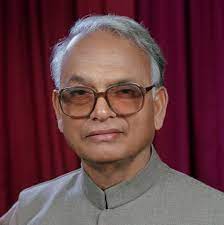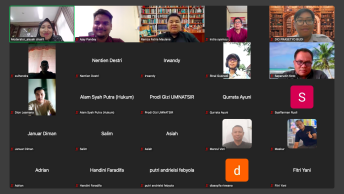Gajendra Narayan Singh stands at the center of Madhesh’s political memory. Long before Madhesh movements shook the country, he was already fighting the battles that nobody else had the courage to fight. He questioned discrimination at a time when speaking up could cost a political career. He demanded national recognition for Madheshi identity when most leaders avoided the topic. His politics was not loud, but it was unshakably principled. For today’s young Madheshi leaders navigating an increasingly competitive political space, his life offers a set of lessons that feel even more urgent now than they did decades ago.
Clarity of Cause
One of Singh’s strongest qualities was his clarity. He knew exactly why he entered politics. He carried a simple but powerful mission: ensure respect, representation, and equal treatment for the people of Madhesh. He did not confuse his goals with personal ambition or temporary alliances. Young leaders often get pulled into immediate bargains, coalition games, or rapid popularity tactics. Singh’s life shows how important it is to stay rooted in a larger purpose. A clear cause does not just guide decisions, it protects a leader from getting lost in distractions.
Principled Political Discipline
Singh’s political conduct was remarkably disciplined. He dressed normally, spoke calmly, lived humbly, and kept distance from the temptations that derail many political careers. He never turned his fights into personal feuds. He maintained dignity even when facing exclusion from state structures. This discipline is a lesson for the new generation. Politics today moves fast and is full of provocations. A leader who holds emotional control, respects opponents, and maintains personal integrity stands out immediately. Discipline is not just about image, it is a political strength.
Commitment to Inclusion
Many people misunderstand Madhesh politics as a fight for separation. Singh rejected such narratives from the beginning. His idea of Sadbhavana was harmony. He built NSP to make the Nepali state more inclusive for Madheshis without promoting hatred toward hill communities or other groups. He believed Madhesh’s progress depended on cooperation, not conflict. Young leaders today should take this to heart. Identity based politics needs a moral compass. Singh showed that you can demand justice without dividing people. This balanced approach can build long term trust across regions and communities.
Patience and Long Term Political Vision
In an era where everyone wants quick results, Singh’s patience stands tall. He spent decades raising Madhesh issues in parliament, in party meetings, and on national platforms. He accepted that meaningful change takes time. He planted seeds knowing that he may not see the full tree. Young leaders today often jump between parties or get disheartened when results are slow. Singh’s journey reminds them that consistency builds credibility. Change in a country like Nepal requires persistence, negotiation, and the ability to inspire people even during slow progress.
Knowledge Driven Leadership
Singh was not just emotional about Madhesh issues. He was intellectually prepared. He studied constitutional matters deeply. He understood state mechanisms, legal gaps, and policy weaknesses. His arguments were informed and strategic. Young Madheshi leaders can learn a lot from this. Emotional slogans may gather crowds, but well researched positions create lasting impact. Leaders who understand governance, law, budgets, and policy can push for deeper structural reforms. Knowledge is not optional, it is essential.
Politics of Self Respect and Dignity
Singh’s leadership carried a sense of dignity that resonated across Madhesh. He believed in self respect and wanted Madheshis to claim their rightful place in the nation. He never begged for political space, he demanded it with confidence. Young leaders today should embrace this mindset. The Madheshi identity is strong and valuable. Representing it with pride, not resentment, creates a more powerful political presence. Singh taught that confidence builds respect, both within Madhesh and in national politics.
Ability to Build Bridges
Despite being a strong voice for Madhesh, Singh never isolated himself from national politics. He spoke with leaders from all sides, maintained relations across parties, and understood the importance of alliances. He balanced assertiveness with diplomacy. For young leaders, this is a vital skill. Madhesh politics can succeed only if its leaders can negotiate nationally, form coalitions, influence policy groups, and bring new partners into the conversation. Singh’s style is a reminder that strong leaders do not stand alone, they build networks.
Legacy of Non Violent Politics
He carried the spirit of nonviolence throughout his political life. Even when Madhesh was ignored or ridiculed, he stayed committed to peaceful change. This moral stance gave NSP a unique identity and earned him national respect. Young leaders should absorb this lesson especially today, when politics globally is becoming more extreme. Nonviolent political expression builds sustainability and keeps the struggle legitimate.
Conclusion
Gajendra Narayan Singh’s life is not just a chapter from the past. It is a manual for the future. Young Madheshi leaders stepping into the political arena today need clarity of mission, discipline in conduct, inclusiveness in approach, patience in strategy, and knowledge in policymaking. Singh lived these values every day. If today’s generation embraces even half of them, Madhesh politics will move from reaction to leadership, from frustration to confidence, and from representation to long term influence. His legacy is not just to be remembered, it is meant to be continued.






